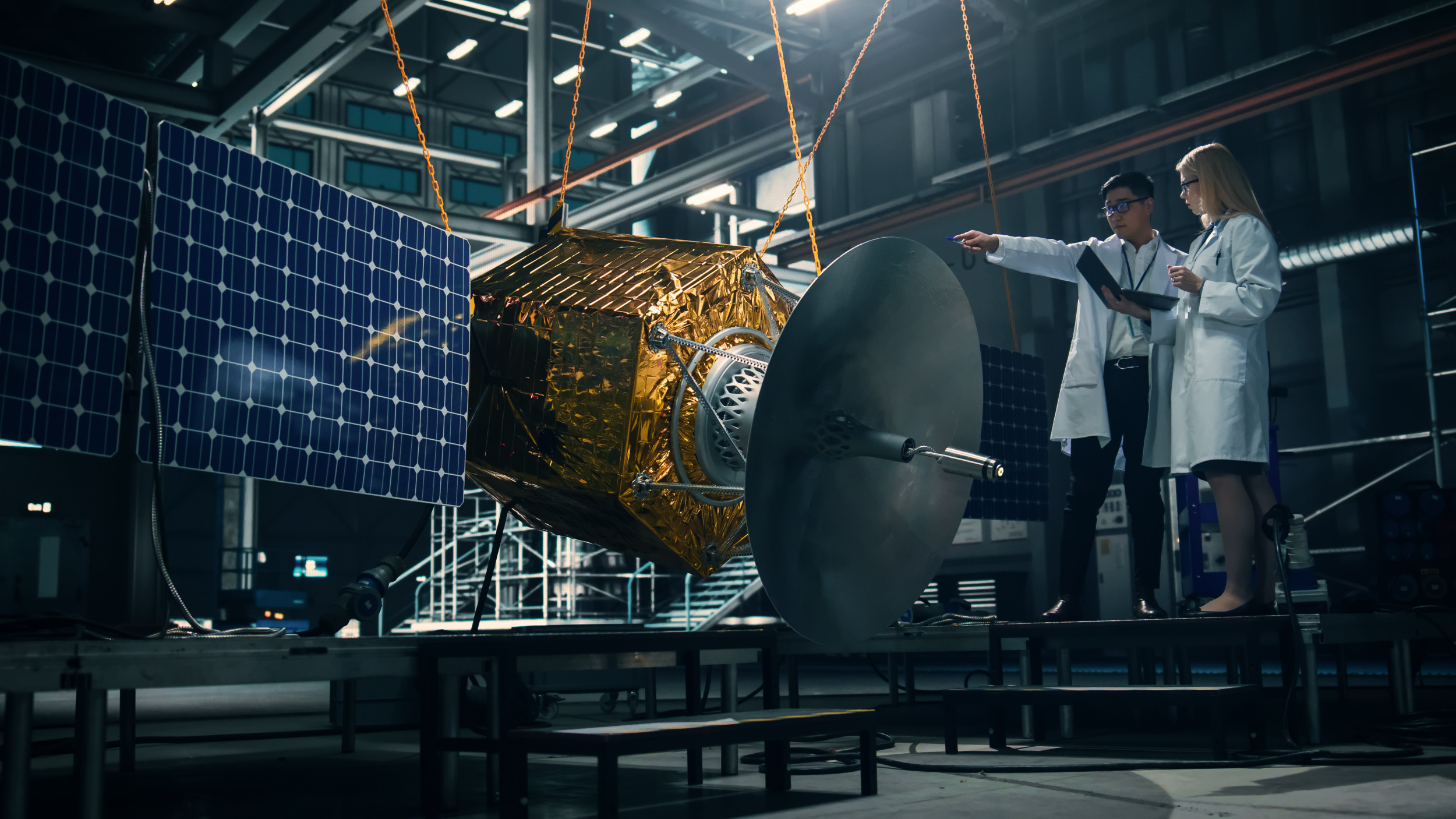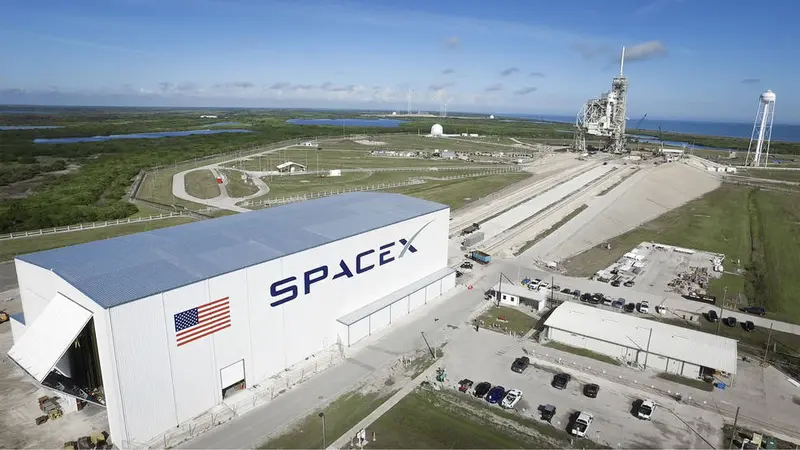Elon Musk’s SpaceX Nears Record Valuation, Set to Become America’s Most Valuable Startup
SpaceX, the private aerospace company founded by billionaire Elon Musk, is on track to become the most valuable startup in the United States, with its valuation reportedly surpassing US$125 billion (approximately INR 1.831 trillion). The surge in value comes amid ongoing secondary market stock sales, highlighting the company’s growth and increasing investor confidence.
According to reports, SpaceX stock is currently trading at around $72 per share, a significant increase from last October when shares were priced at $56 following a 10-for-1 stock split. At that time, SpaceX’s valuation was already an impressive $100 billion. The rise in the share price reflects the growing demand for SpaceX stock in the secondary market, as the company continues to solidify its position as a leader in the commercial space industry.
Stock Sales and Valuation

The secondary stock sales have propelled SpaceX’s valuation beyond $125 billion, placing it ahead of other prominent startups, including the fintech giant Stripe, which is valued at $115 billion in its own secondary market sales. Despite the ongoing stock sale activity, no new shares have been issued in this round, although SpaceX has informed investors that it may issue additional shares later in the year. This move is typical for private companies of such high value, allowing early investors and employees the opportunity to cash out some of their holdings without diluting ownership through the issuance of new shares.
It remains unclear how many shares will eventually be sold, and there has been no official confirmation regarding whether Elon Musk, who owns 44% of SpaceX, is among the sellers. This news comes at a time when Musk is also involved in a separate $44 billion deal to acquire Twitter, adding another layer of complexity to his business ventures.
Capital-Intensive Growth
![]()
SpaceX operates in a capital-intensive industry, where significant investment is required for research, development, and production of advanced space technologies. The company has raised substantial funds in recent years to support its ambitious goals. In December 2021, SpaceX secured $337.4 million in funding, and earlier in April 2021, the company raised a massive $1.16 billion through equity financing. These capital infusions have helped SpaceX maintain its rapid pace of development, enabling it to compete with other major players in the commercial space sector, such as Jeff Bezos’ Blue Origin and Richard Branson’s Virgin Galactic.
SpaceX’s Achievements and Role in the Space Industry

Founded in 2002 by Elon Musk, SpaceX has revolutionized the space industry with its focus on reusable rocket technology and ambitious space exploration goals. One of the company’s most notable achievements is the development of the Falcon 9 rocket, which has become a workhorse for both government and commercial space missions. SpaceX has been a key partner of the National Aeronautics and Space Administration (NASA), launching numerous payloads and astronauts to the International Space Station (ISS) as part of its contract with the agency.
SpaceX has made history with several firsts in the aerospace industry. In 2012, the company became the first privately-funded entity to send a spacecraft, the Dragon, to the ISS. SpaceX also pioneered the concept of landing and reusing rockets, a technological advancement that drastically reduces the cost of space travel. The Falcon Heavy, currently the most powerful operational rocket, has further solidified SpaceX’s dominance in heavy payload launches.
In 2020, SpaceX achieved another milestone with the launch of its Crew Dragon spacecraft, which successfully carried NASA astronauts to the ISS, marking the first time a private company transported humans into orbit. The mission, known as Demo-2, was a significant step toward SpaceX’s vision of enabling regular human spaceflight.
The company is also developing the Starship, a next-generation spacecraft designed for deep space missions, including trips to the Moon and Mars. The Starship is central to Musk’s long-term vision of colonizing Mars and making humanity a multi-planetary species. With test flights underway, SpaceX is pushing the boundaries of space exploration and setting new standards for the industry.
A Competitive Landscape
SpaceX faces fierce competition in the commercial space race, particularly from other billionaires who have entered the industry. Jeff Bezos, founder of Amazon, launched Blue Origin with the goal of expanding humanity’s reach into space. Blue Origin’s New Shepard rocket is designed for suborbital space tourism, with Bezos himself taking part in a high-profile flight in July 2021. The company is also working on New Glenn, a heavy-lift rocket that will compete with SpaceX’s Falcon 9 and Falcon Heavy in the future.
Virgin Galactic, led by British entrepreneur Richard Branson, is another key competitor, primarily focused on space tourism. In July 2021, Branson became the first billionaire to travel to space aboard his own company’s spacecraft, the VSS Unity. However, SpaceX’s focus on both space tourism and more industrial uses of space exploration, such as satellite deployment and NASA missions, places it in a different category of competition.
Expanding Beyond Space
In addition to its space operations, SpaceX has ventured into telecommunications with its Starlink satellite internet service. Starlink aims to provide high-speed internet access to remote and underserved regions across the globe by deploying a constellation of low Earth orbit satellites. As of 2022, Starlink has launched thousands of satellites and has begun providing service in several countries, with plans to expand further. This diversification into telecommunications adds another revenue stream to SpaceX’s already burgeoning business.
Looking Ahead
With its valuation climbing and the continued success of its space missions, SpaceX is well-positioned to remain at the forefront of the space industry. Its long-term goals, such as colonizing Mars and expanding Starlink, promise to keep the company in the spotlight for years to come. Investors are likely to continue showing strong interest, especially if the company follows through on plans to issue additional shares.
As SpaceX scales new heights, the company’s influence in both the commercial space industry and space exploration as a whole continues to grow, making it a pivotal player in shaping the future of humanity’s journey beyond Earth.











